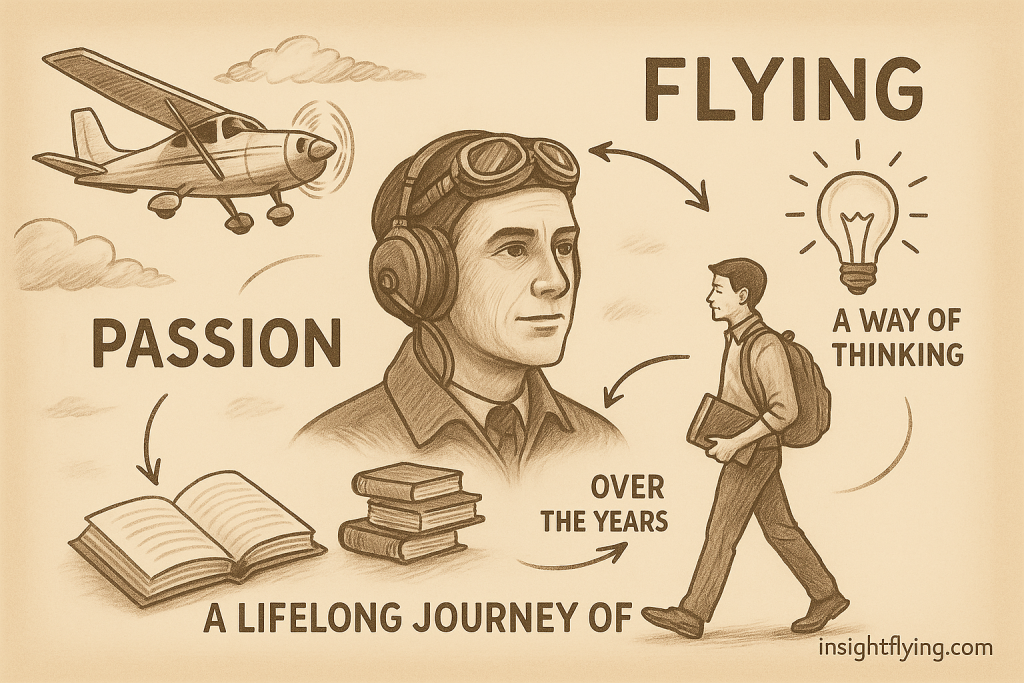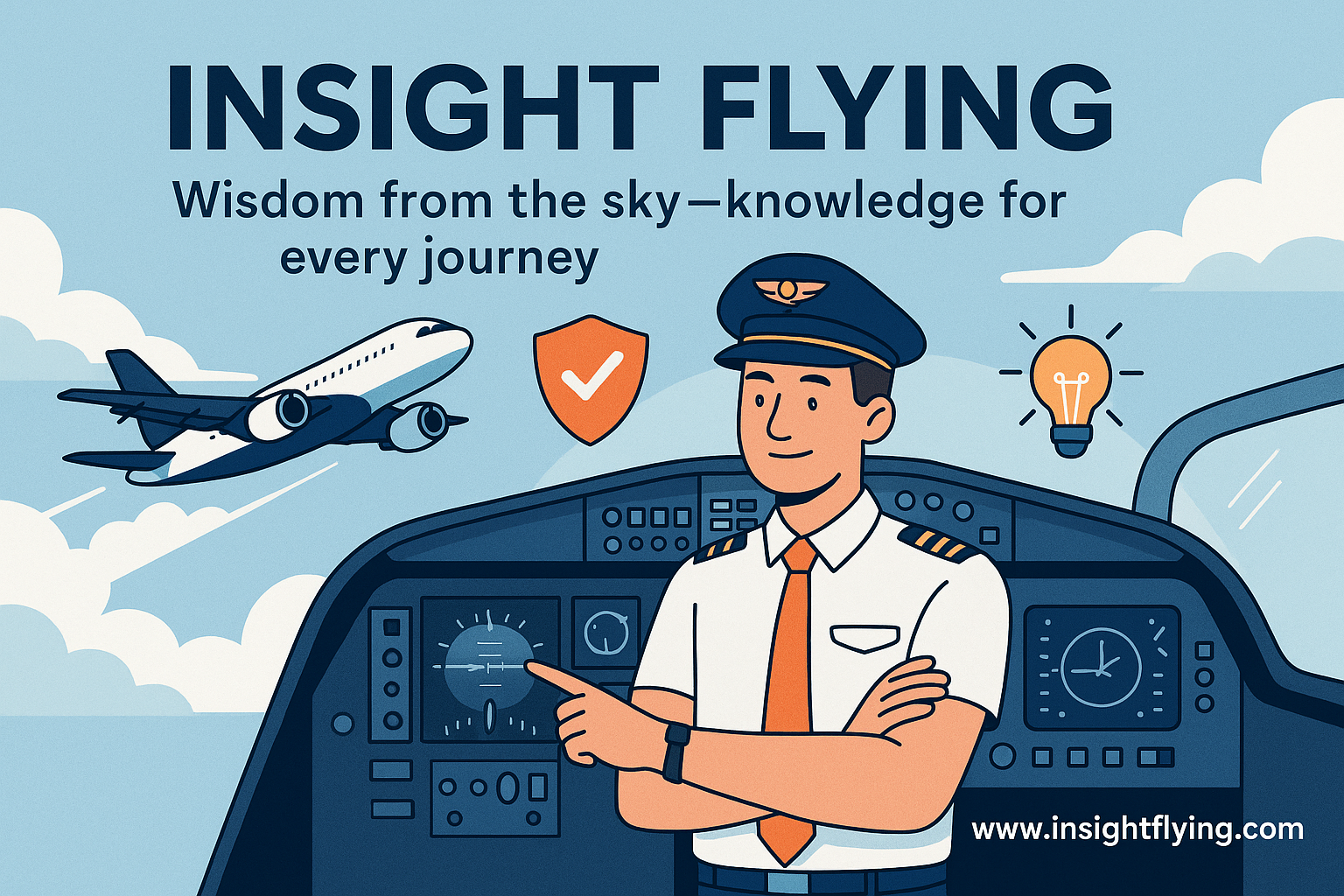การสอบสัมภาษณ์นักบินไม่ใช่เพียงการทดสอบความรู้ด้านวิชาการหรือทักษะการบินเท่านั้น แต่ยังเป็นการวัด “คุณสมบัติภายใน” ที่บ่งบอกว่าผู้สมัครมีความพร้อมแค่ไหนที่จะก้าวเข้าสู่วิชาชีพที่มีความรับผิดชอบสูง ในการคัดเลือกนักบิน มักมีเกณฑ์การประเมินด้านบุคลิกภาพและจิตวิทยาที่สำคัญอยู่ 4 หัวข้อ ได้แก่ Motivation, Attitude/Appearance, Judgement และ Self-Knowledge
1. Motivation – แรงจูงใจ
Motivation คือสิ่งที่ผลักดันให้ผู้สมัครอยากเป็นนักบิน คำตอบไม่จำเป็นต้องสวยหรู แต่ต้อง “จริงใจ” และสะท้อนตัวตนว่าทำไมถึงเลือกเส้นทางนี้ แรงจูงใจที่มักสร้างความประทับใจคือการอยากเรียนรู้ อยากท้าทาย และอยากรับผิดชอบงานที่เกี่ยวกับความปลอดภัย ไม่ใช่เพียงเพราะชื่อเสียงหรือรายได้
สิ่งสำคัญคือ การตอบอย่างตรงไปตรงมา เช่น “ผมชอบเทคโนโลยีและการแก้ปัญหา จึงอยากทำงานที่ได้ใช้ทักษะเหล่านี้ในสภาพแวดล้อมจริง” มากกว่าคำตอบที่ท่องมาเพื่อเอาใจกรรมการ
2. Attitude/Appearance – ทัศนคติและการแสดงออก
Attitude คือสิ่งที่อยู่ภายใน เป็นวิธีคิด ความเชื่อ หรือความรู้สึกของเรา
Appearance คือสิ่งที่แสดงออกมาภายนอก ผ่านการพูด น้ำเสียง การนั่ง การยืน หรือแม้แต่การสบตา
แม้เราจะไม่สามารถอ่านใจผู้สมัครได้ทั้งหมด แต่ “การแสดงออก” เป็นสิ่งที่กรรมการใช้ตัดสินเป็นหลัก เพราะมันสะท้อนความมั่นใจ ความสุขุม และทัศนคติที่แท้จริง
นักบินที่ดีควรแสดงออกถึงความมั่นใจ (แต่ไม่โอเวอร์) ความสงบ ไม่ตื่นตระหนก และสามารถสื่อสารได้ชัดเจน Appearance จึงเป็น “ตัวแทน” ของ Attitude ที่ผู้สัมภาษณ์จับต้องได้ทันที
3. Judgement – การตัดสินใจ
Judgement สำหรับนักบินไม่ใช่เพียง “การคิด” แต่คือ “การรู้ว่าเมื่อไหร่ควรคิดนาน เมื่อไหร่ควรตอบหรือทำทันที”
ในห้องสัมภาษณ์ ถ้าถูกถามเรื่องง่าย ๆ เช่น “บ้านอยู่ที่ไหน” แต่กลับคิดนาน อาจทำให้กรรมการสงสัยว่าคุณกำลังโกหกหรือไม่แน่ใจในตัวเอง แต่ถ้าเป็นคำถามสำคัญที่มีผลลัพธ์ชัดเจน ถูกหรือผิด ควรใช้เวลาเพื่อคิดอย่างรอบคอบก่อนตอบ
สำหรับนักบินจริง ๆ แล้ว Judgement ยิ่งสำคัญกว่า เพราะไม่ว่าเครื่องบินจะมี checklist หรือ procedures ครบถ้วนเพียงใด ก็ไม่สามารถครอบคลุมทุกสถานการณ์ได้ นักบินจึงต้องมีสติ วิเคราะห์ และตัดสินใจอย่างสมเหตุสมผลภายใต้ข้อจำกัดของเวลาและความปลอดภัย
4. Self-Knowledge – การรู้จักตัวเอง
Self-Knowledge หมายถึงความเข้าใจในข้อจำกัด จุดแข็ง และจุดอ่อนของตัวเองอย่างแท้จริง ผู้สมัครที่มี Self-Knowledge มักตอบคำถามด้วยความซื่อสัตย์ ไม่สร้างภาพ และสามารถบอกได้ว่าอะไรคือสิ่งที่ทำได้ดี อะไรคือสิ่งที่ควรพัฒนา
ผู้สัมภาษณ์ต้องการเห็นว่า:
- คุณยอมรับข้อบกพร่องของตัวเองได้หรือไม่
- คุณมั่นใจในตัวเองอย่างพอดี ไม่มากหรือน้อยเกินไป
- คุณเรียนรู้จากประสบการณ์ในอดีต และพร้อมจะเติบโตต่อไป
ตัวอย่างคำตอบที่ดี เช่น “ผมเคยประหม่าเวลาออกไปพูดต่อหน้าคนเยอะ ๆ แต่ปัจจุบันพยายามฝึกฝนอยู่เสมอ” นั่นแสดงทั้งการรู้จักตัวเองและความตั้งใจพัฒนา
บทสรุป
ทั้ง 4 หัวข้อ — Motivation, Attitude/Appearance, Judgement และ Self-Knowledge — ไม่ได้แยกออกจากกัน แต่เชื่อมโยงเป็น “บุคลิกภาพรวม” ของผู้ที่จะเป็นนักบินที่ดี
- Motivation แสดงให้เห็นว่าทำไมคุณถึงเลือกเส้นทางนี้
- Attitude/Appearance สื่อสารให้ผู้อื่นรับรู้ว่าคุณเป็นอย่างไร
- Judgement บ่งบอกว่าคุณคิดและตัดสินใจได้สมเหตุสมผลหรือไม่
- Self-Knowledge คือการรู้จักและยอมรับตัวเอง พร้อมจะพัฒนาอย่างต่อเนื่อง
ผู้สัมภาษณ์ไม่ได้มองหาคนที่สมบูรณ์แบบ แต่ต้องการ “นักบินที่จริงใจ มั่นใจ และพร้อมจะเรียนรู้”
เพราะสุดท้ายแล้ว ความปลอดภัยของผู้โดยสารและทีมงานทั้งลำ ต้องขึ้นอยู่กับคนที่นั่งอยู่ในห้องนักบิน

Key Qualities of Pilot Applicants: Motivation, Attitude/Appearance, Judgement, and Self-Knowledge
A pilot interview is not only about testing academic knowledge or flying skills. It is also about evaluating the personal qualities that indicate whether the applicant is truly ready to step into a profession with such high responsibility.
Among the most important assessment areas are Motivation, Attitude/Appearance, Judgement, and Self-Knowledge.
1. Motivation
Motivation is the driving force behind why someone wants to become a pilot. The answer doesn’t need to be polished or impressive, but it should be genuine.
Strong motivations often reflect a desire to learn, to take on challenges, and to handle responsibilities related to safety — not merely the pursuit of status or income.
For example, saying “I enjoy technology and problem-solving, and I want to apply these skills in real-life operations” often resonates more than a memorized or artificial response.
2. Attitude/Appearance
Attitude is internal — how one thinks, feels, or frames situations.
Appearance is external — what others can see through body language, tone of voice, confidence, or calmness.
While interviewers cannot read minds, they can observe appearance as a reliable reflection of attitude. A candidate who communicates clearly, stays calm, and projects confidence (without arrogance) demonstrates the right mindset.
Appearance, in this sense, becomes the visible channel through which attitude is expressed.
3. Judgement
Judgement in aviation is more than just “thinking” — it’s about knowing when to think carefully and when to act immediately.
In an interview, if asked a simple question like “Where is your hometown?” but you pause too long, the interviewer may assume you are uncertain or making up a story. Conversely, for critical questions with high stakes, taking time to think shows maturity.
In the cockpit, good judgement becomes even more crucial. Checklists and procedures exist to reduce pilot errors, but no manual can cover every possible situation. Pilots must analyze, prioritize, and make sound decisions under time and safety constraints.
4. Self-Knowledge
Self-knowledge means understanding one’s strengths, weaknesses, and limitations. It reflects honesty and self-awareness, qualities highly valued in a pilot.
Interviewers often test this by asking questions such as:
- What are your weaknesses?
- What are you most afraid of?
- What past experience left the strongest impression on you?
A good candidate does not try to appear flawless but instead shows awareness and willingness to grow. For instance, “I used to feel nervous speaking in front of large groups, but I’ve been working on improving through practice” conveys both self-awareness and personal development.
Conclusion
The four qualities — Motivation, Attitude/Appearance, Judgement, and Self-Knowledge — are interconnected and together form the foundation of a strong pilot candidate.
- Motivation shows why you want to fly.
- Attitude/Appearance shows how you present yourself.
- Judgement shows how you make decisions.
- Self-Knowledge shows who you really are and how you grow.
Interviewers are not seeking perfection. They are seeking a pilot who is genuine, confident, and willing to keep learning.
Because ultimately, the safety of passengers and crew depends on the person sitting in the cockpit.

